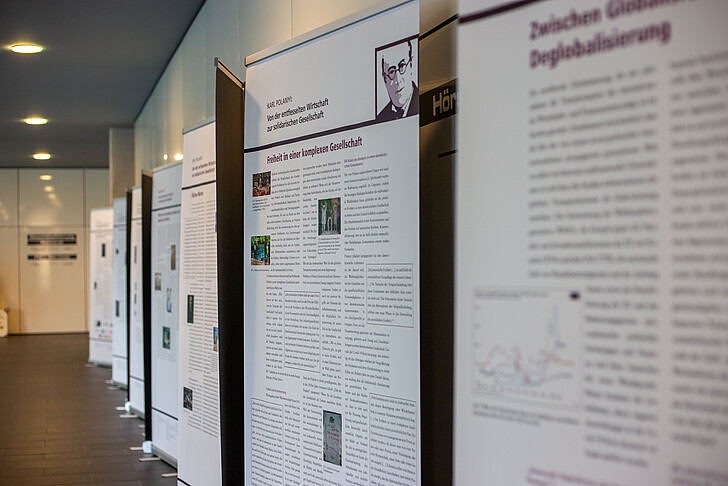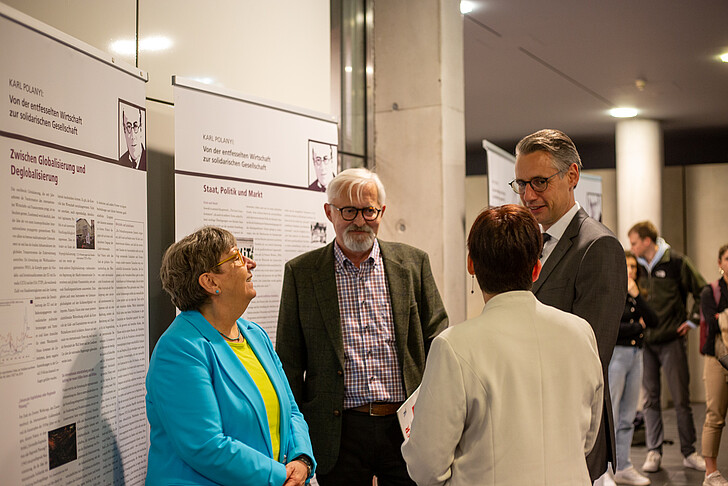On November 7, the travelling exhibition on the life and work of the economist and social scientist Karl Polanyi was opened at the Salzburg University of Applied Sciences. The event attracted numerous students from the Departments of Business & Tourism and Applied Social Sciences, who actively engaged with Karl Polanyi's multifaceted work during the opening and the subsequent lecture on "The Great Transformation - what Polanyi would have to say to us today".

The travelling exhibition, which was created in cooperation with numerous universities and educational centers, shows Polanyi's life and work in detail as well as his relevance for the analysis of current economic, social and political developments. Chapters about his family and companions up to the Great Transformation and freedom in a complex society are presented on 16 roll-ups.
Prof. Brigitte Aulenbacher, Head of the Department of Social Theory and Social Analysis at the Institute of Sociology at the JKU Linz and Vice President of the International Karl Polanyi Society, provided students and visitors with fascinating insights into the life and work of Karl Polanyi in a discussion after the exhibition opening.
The exhibition will be accessible for some time on the first floor of the Urstein campus. We would like to thank the Arbeiterkammer Salzburg for the initiative!

About Karl Polanyi
The Austrian-born economist and social scientist Karl Polanyi (1886-1964) is considered a thinker of the century. In his important work "The Great Transformation", he described the profound change in society towards a market society in which labor, land and money also became commodities. This transformation was driven by the idea that the individual pursuit of profit and a self-regulating market were the exclusive controllers of the fate of people and the natural environment. However, this led to counter-movements with which people tried to protect themselves from social disintegration and the loss of human values. Polanyi saw fascism and socialism as counter-movements to protect against market fundamentalism.
In the current times, characterized by complex social dynamics, the struggle for the reorganization of society and the challenges of technological developments, an examination of Polanyi's work can help to embed economic thinking in larger social and ecological contexts and not to align the economy exclusively with the interests of a few.

